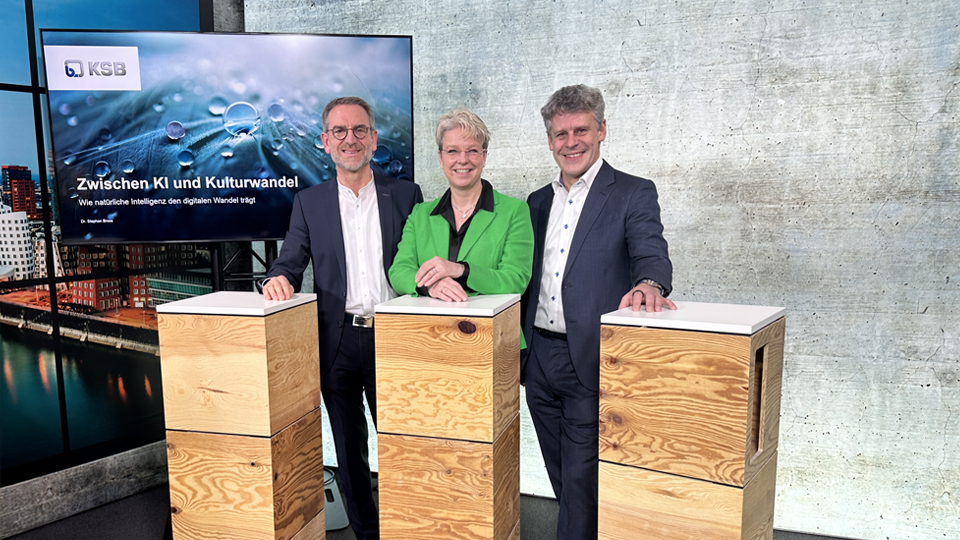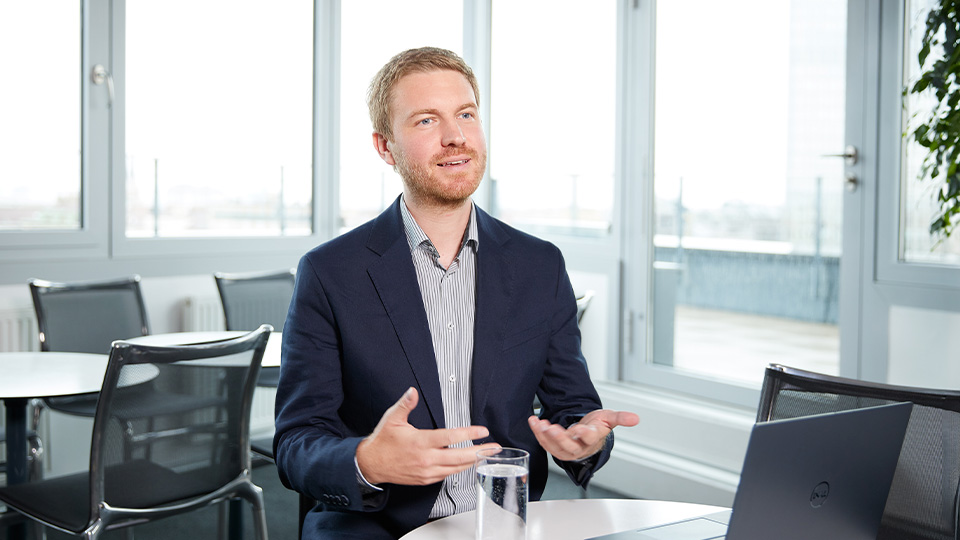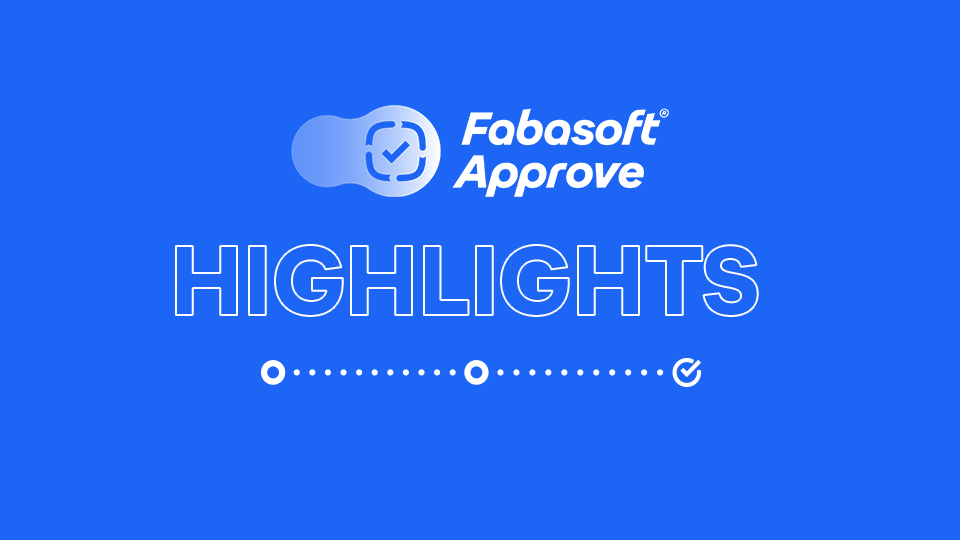In this Handelsblatt Expert Talk, leading experts such as Dr.-Ing. Stephan Bross, CTO at KSB; Dr. Astrid Petersen, Deputy Chairwoman of the Wissensfabrik steering committee; and Andreas Dangl, Managing Director at Fabasoft Approve, deliberately highlighted the opposite of the AI hype. The participants in the round table, moderated by Laura Koliska, Head of Learning at Handelsblatt, discussed how companies can successfully implement digital change by using modern technologies – with the employees at the center.
Practical insights into the transformation process at KSB
At the start of the event, Dr.-Ing. Stephan Bross, CTO at KSB, provided an insight into the company's digital transformation. He emphasized that the integration of technologies not only optimizes existing processes, but also makes it possible to develop new products and services. Particularly in mechanical engineering, where traditional business models are increasingly reaching their limits, digitalization is becoming a driving force for innovation and growth.
However, he believes that this change requires two vital factors: courage and investment. Above all, management must actively drive the transformation, especially when it comes to the use of artificial intelligence (AI). It is crucial not to implement AI for its own sake, but to use it in a targeted way where it creates real added value – whether it's increasing efficiency, supporting employees, or building new business models.
Communication as the key to successful transformation
Dr. Astrid Petersen emphasized that communication plays a significant role in digital transformation. Companies should take a close look at their employees' fears and concerns in order to identify and reduce resistance at an early stage. A central success factor is to create a corporate culture in which curiosity and courage in the face of new technologies are encouraged.
She sees concerns about AI as a common obstacle – e.g., the fear of being replaced by automation or of not being able to keep up with the new technologies. Here, it is essential that companies take fears seriously, prioritize further training, and communicate the benefits of AI in a coherent way. This is the only way to create acceptance and successfully shape the digital transformation. Dr.-Ing. Stephan Bross confirmed this: “A good ‘why’ supports every ‘what’ and ‘how’. If you explain to employees why we are doing something, how we are doing it and what the goal is, you will take away a large part of their fear.”
Targeted AI strategy instead of actionism for its own sake
Andreas Dangl emphasized the importance of a clear and well-thought-through AI deployment in companies. While AI is already widely used in the private sphere – e.g., through tools such as ChatGPT – the question for companies is: Which AI applications really add value?
In his opinion, it is important not to be blinded by the multitude of possibilities, but to proceed strategically. Companies need to think long and hard about which AI use cases are relevant for them and what actual benefits they will generate. A hasty introduction of artificial intelligence can quickly lead to bad investments – e.g., if an AI-based chatbot is implemented on a company website without first clearly defining what concrete added value it should offer.
Ultimately, according to Andreas Dangl, it is not the technology alone that determines success, but rather the clever selection and integration of meaningful AI applications. Companies that use artificial intelligence strategically and focus on the actual benefits will create sustainable innovation instead of expensive experiments.
You can find the recording of the entire Handelsblatt Expert Talk here (Note: The Expert Talk can only be viewed in German): To recording



